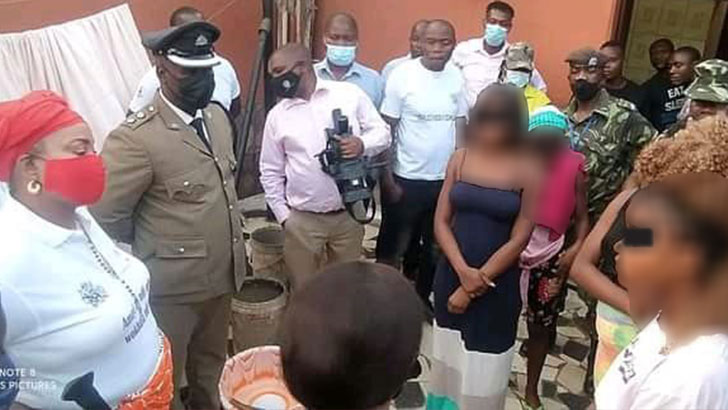Underage girls Raid stirs debate
Efforts by Ministry of Gender, Community Development and Social Welfare to rescue young girls from suspected sex trafficking have drawn mixed reactions from activists.
At least seven girls aged between 14 and 16 were rounded up in Biwi Township in Lilongwe on Tuesday in an operation Minister of Gender, Community Development and Social Welfare Patricia Kaliati led her ministry officials and armed police. She said the raid was meant to fight sex trafficking of young girls in the country.
During the raid in Lower Biwi area the young girls were rounded up in rest houses, lodges and bars.

In an interview yesterday, Kaliati said one of the girls was found with sexually transmitted infections (STIs) and is receiving treatment while another girl, originally from Mozambique, is three months pregnant.
But she refused to divulge details on where the girls are being kept, only insisting that they were safe and that plans are underway to reunite them with their families or relations.
Kaliati said the raids will be conducted across the country.
She said: “In fact, we found a man in one of the rooms with one of the young girls. So, we are appealing to our men to respect themselves.
“As parents, they should be the ones to advise the young ones against such behaviour and not procuring sex from the young girls.”
The minister said she also suspects that some of the owners of bars and lodges in the area are behind a syndicate that is allegedly smuggling young girls from rural areas. She warned that the long arm of the law will catch up with such perpetrators.
Kaliati also said there is evidence that some of the girls roaming in bars in Lilongwe come from Dzaleka Refugee Camp in Dowa and warned the refugees to respect the country’s laws.
In an interview yesterday, Centre for Human Rights Education, Advice and Assistance (Chreaa) executive director Victor Chagunyuka Mhango and Ruth Kaima, a lawyer who fights for sex workers’ rights, said the girls were victims, not criminals.
Kaima called for the girls to be sent to safety homes as stipulated in Section 96 of the Child Care, Protection and Justice Act (CCPJA).
She said: “If the girls were involved in sex work, their clients should be arrested for defilement.”
Kaima said sex work is not illegal in Malawi, but if the girls were involved in it, it is a case of child labour which is against Section 23 (4) of the Constitution.
She said: “If anybody was to be arrested in this case, it should have been the owners of the joints or if the girls were involved in sex work, their clients should be arrested for abusing and exploiting the girls.
“The law provides for the establishment of safety homes for girls like these.”
Mhango also said the owners of the joints where the girls were found should be arrested for trafficking.
He said: “By being found at the joints, it is most probable somebody took them there. The girls may be victims of human trafficking and were being held by someone who was benefitting from the proceeds of their sex work. The girls are not criminals but victims.”
Mhango added that this may also be a result of negligence on the part of the girls’ parents, for which they should be arrested. He cited Section 23 (3) of the Constitution.
In a separate interview yesterday, United Nations Malawi national programme officer on trafficking in person and drugs Maxwell Matewere said a 2020 report by the United States Department of State shows that there is laxity among law enforcers to fight sex trafficking in the country.
He said Section 15 of Trafficking in Person Act provides that any person who recruits, transport, harbour and exploit a child commits a criminal offence and is liable to 21 years imprisonment.
Said Matewere: “If you are an owner of a building like a lodge where the young girls are being exploited, then you are benefitting from sex trafficking and you need to be punished.
“In fact, most lodges near drinking joints are occupied by prostitutes which means such places are being run as brothels, and that is an offence.”
In 2015, Parliament took a landmark decision towards advancing gender equality by banning child marriage in the country. The Parliament unanimously adopted a constitutional amendment that raises the minimum age of marriage from 15 to 18 years, for both girls and boys.
While age of consent for sexual intercourse is 16 years for females. The law makes sexual intercourse with a female under the age of 16 years illegal.
A 2018 study by Centre for Social Concern shows that 1 500 Malawian women and children are trafficked for purposes of sex every year.





